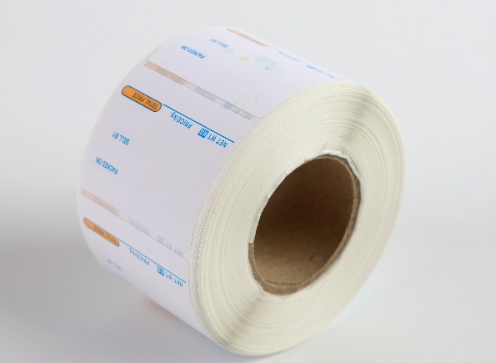Tire vulcanization labels are specifically designed to withstand the harsh conditions of the tire manufacturing process, including high temperatures and exposure to various chemicals. The materials used for these labels need to be durable and capable of adhering to the tire surface throughout the vulcanization process. Here are some common materials used for tire vulcanization labels:

-
Polyimide (PI):
- Polyimide is a high-performance polymer known for its excellent thermal stability and resistance to chemicals. It is often used in tire vulcanization labels due to its ability to withstand high temperatures.
-
Polyester (PET):
- Polyester labels, especially those with special coatings or treatments, can be suitable for tire vulcanization. PET is known for its durability and resistance to heat.
-
Polytetrafluoroethylene (PTFE):
- PTFE is a high-temperature-resistant synthetic material with nonstick properties. Labels made from PTFE can withstand the heat and pressure of tire vulcanization.
-
Ceramic Labels:
- Ceramic labels, often made from materials like aluminum oxide or aluminum nitride, are known for their high-temperature resistance. They can be used in demanding applications like tire vulcanization.
-
Specialized Coated Labels:
- Labels may be coated with specialized materials or laminates to enhance their resistance to heat, chemicals, and abrasion during the tire vulcanization process.
-
Thermal Transfer Labels:
- Thermal transfer labels can be used with a ribbon to create high-quality prints. The labels are designed to resist heat and provide clear, durable printing.
-
Adhesives:
- The adhesive used in tire vulcanization labels must be specifically formulated to adhere to the rubber surface of the tire during the vulcanization process. It should withstand heat, pressure, and exposure to chemicals.
-
Synthetic Materials:
- Labels made from synthetic materials, such as polyethylene (PE) or polypropylene (PP), can be suitable for tire vulcanization. These materials offer a combination of durability and resistance to environmental factors.
It's essential to work with label manufacturers or suppliers who specialize in providing materials specifically designed for tire vulcanization. These labels must meet the unique challenges posed by the tire manufacturing process, ensuring that the labels remain intact, legible, and securely adhered to the tire surface throughout vulcanization. Always refer to the manufacturer's guidelines and specifications to ensure that the selected label material is suitable for the intended application.
We offer comprehensive technical support, including free professional labeling solutions, advice on label materials and adhesive selection, as well as online/offline assistance from professional software and hardware engineers. Service email: andy@ownlikes.cn. In pre-sales, we leverage our extensive experience in specialty labeling projects to provide clients with the most suitable hardware solutions. Additionally, all our label barcode printers and scanners come with a three-year free warranty, demonstrating our confidence in our products.




